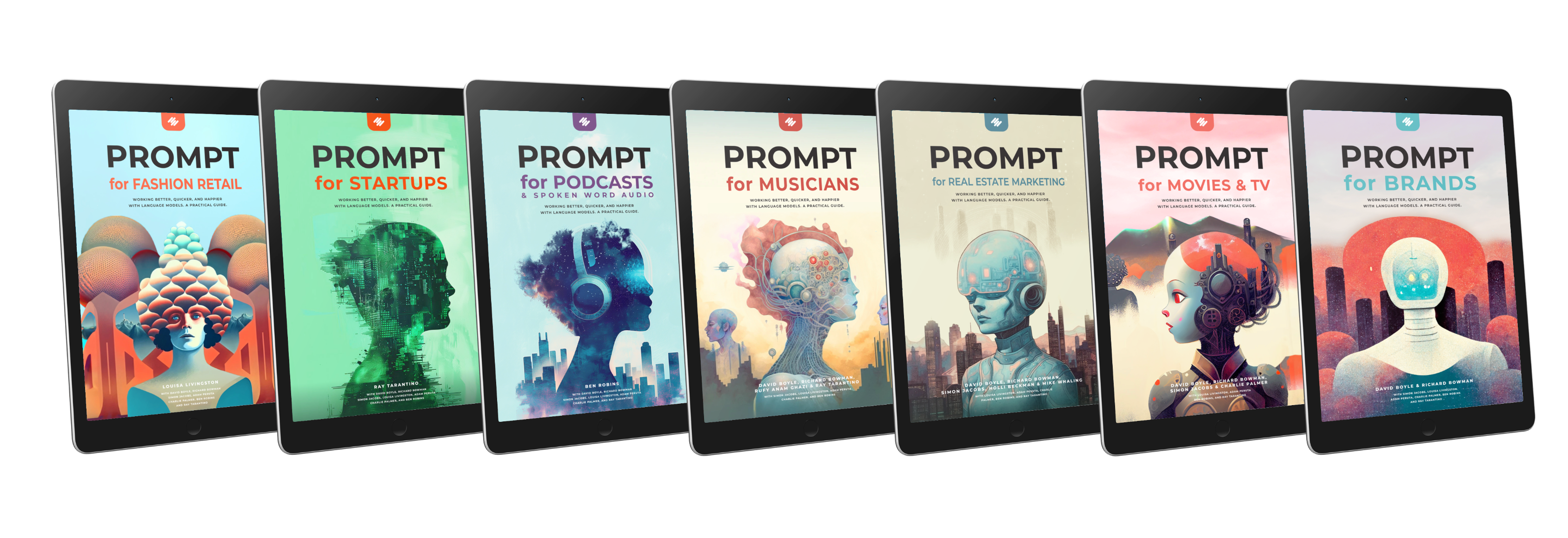Many remain skeptical of ChatGPT's potential to provide actionable audience insights, believing responses to be shallow, generic, or simply "parroted." Yet we've used ChatGPT insights to help some of the largest brands innovate, debunking common myths in the process.
“ChatGPT just repeats obvious facts, doesn't really "understand" anything, its responses are too simplistic, its knowledge is too limited, it just provides generic responses, its answers are too inconsistent, it can't reason logically, it has no common sense, it's incapable of creativity, and its responses lack value.”
Myth: ChatGPT just repeats obvious facts.
Reality: Through analysis of vast training data, ChatGPT can infer subtle patterns and generate nuanced audience needs, as we've seen firsthand advising Fortune 500 clients.
Myth: ChatGPT doesn't really "understand" anything.
Reality: While lacking human cognition, ChatGPT demonstrates a model form of "understanding" through its ability to make connections across patterns, generating novel insights for our clients.
Myth: ChatGPT's responses are too simplistic.
Reality: With targeted prompting, ChatGPT can provide complex, multi-faceted audience insights, as we've found in work advising major brands on global growth strategies.
To demonstrate ChatGPT's potential, we must step back and examine its key abilities: vast data exposure, pattern recognition/inference, iterative dialogue, and unbiased reasoning. These allow ChatGPT, with proper guidance, to generate actionable audience insights that have helped some of the world's largest brands develop product innovations, marketing campaigns, and strategic partnerships.
To help with this, we wrote a paper available here exploring ChatGPT's abilities in depth, providing both practical examples and advice on overcoming common roadblocks. By gaining a more nuanced view of ChatGPT's strengths and limitations, we can leverage this powerful tool to generate genuine value - busting common myths and fueling innovation in the process.
Here's a quick summary of the topics the paper explores:
ChatGPT can be a powerful tool in tasks like understanding deep underlying human needs and strategizing around audience engagement for several reasons:
- Volume and Diversity of Training Data: ChatGPT has been trained on a diverse range of datasets including books, websites, and other texts. It has 'seen' a myriad of human experiences, emotions, needs, and desires. In the context of Ibiza beach footwear, the model has likely been exposed to data about fashion trends, consumer reviews, discussions about environmental sustainability, and the specifics of beach-related activities, to name a few. This breadth of exposure allows it to generate insightful responses based on patterns it's learned.
- Pattern Recognition and Inference: At its core, ChatGPT uses patterns in data to draw inferences. If people consistently mention 'comfort' when talking about footwear, the model will associate those concepts. When asked about footwear needs, it'll likely include 'comfort' in the response. Similarly, by observing a high correlation between discussions of beachwear and themes of aesthetics and status, the model can infer that these needs might be prominent for the Ibiza beach footwear audience.
- Synthesizing Information: ChatGPT is capable of taking disparate pieces of information and synthesizing them into a coherent whole. For instance, it could take consumer complaints about beach footwear (e.g., "they're uncomfortable after a day at the beach," "they don't last more than a summer"), couple them with cultural information about Ibiza (e.g., party culture, hot weather), and produce suggestions for audience segments with associated needs and potential frustrations.
- Interactive Exploration: Unlike traditional market research methods, you can interact with ChatGPT in real-time, iteratively refining your questions based on its responses. You could start broad ("What are the key needs for beach footwear?") then go specific ("What could frustrate a user prioritizing comfort?"). This ability to 'dialogue' helps to unearth more nuanced insights and opens up creative avenues that might have been missed in a one-shot, unidirectional survey or study.
- Unbiased Reasoning: While human researchers might have biases, GPT models don't possess personal beliefs or emotions, allowing for an unbiased perspective. It generates responses based on the patterns it has learned in the data, rather than personal experiences or preferences.
In summary, the vast, diverse training data, coupled with the model's pattern recognition, synthesis, and interactive capabilities, makes it very reasonable to assume ChatGPT would be useful for tasks like this, offering novel insights and driving creative, strategic decision-making. And that's precisely what we've found working with some of the world's largest companies on this topic.
For much more on the above themes, please see our detailed paper, which includes a deep-dive into the Ibiza beach footwear market to illustrate ChatGPT's insights in action. It is open to comments - so please leave feedback to tell us what you think!
